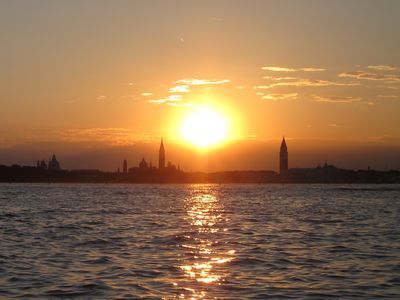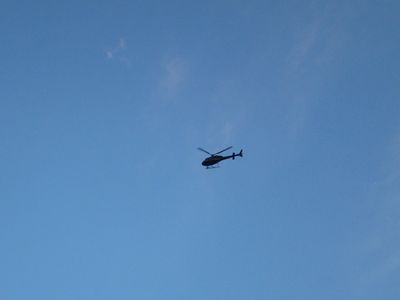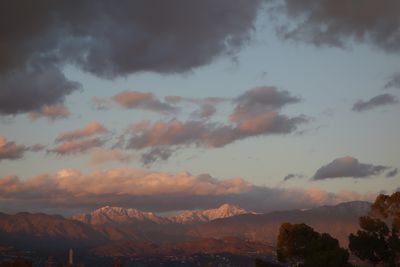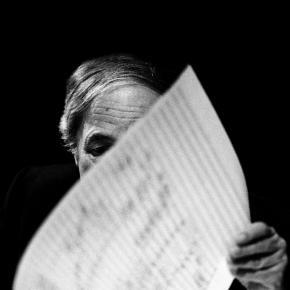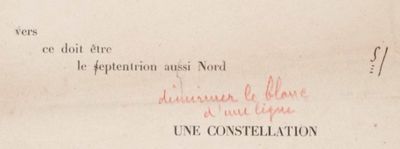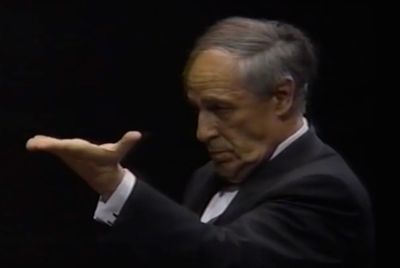Alex Ross's Blog, page 105
January 27, 2016
Venice at Carnegie
Carnegie Hall has announced a handsomely varied 2016-17 season. There are various noteworthy events — a new Steve Reich piece, Pulse; a Barenboim marathon of Bruckner symphonies and Mozart concertos; the Boston Symphony playing George Benjamin's Dream of the Song; the St. Louis playing John Adams's Gospel According to the Other Mary; some finely curated Simon Rattle programs — but the centerpiece is a sprawling celebration of the music and culture of the Venetian Republic. I haven't been so convinced in the past by Carnegie's geographical festivals, but this one has an impressively lavish scope and lineup. New York early-music groups have complained that Carnegie ignores them in favor of European imports; the hall has paid heed, and this time features Tenet in two presentations, of Vivaldi's Juditha triumphans and of women in seventeenth-century Italy. Quicksilver is also included, alongside such groups as the Venice Baroque Orchestra, Il Pomo d'Oro, Gallicantus, Jordi Savall and Hespèrion XXI, the Tallis Scholars, Cappella Mediterranea, and Concerto Italiano (in a concert performance of L'incoronazione di Poppea). La Serenissima should be pleased.
Jaap van Zweden to the NY Phil
A Cultural Comment on the New Yorker website.
A further thought: when the remarkable Carlos Moseley was in charge, in the sixties and seventies, the Philharmonic pursued a consistent vision. Bernstein and Boulez were very different personalities, but they both believed in modernizing the orchestra, and took steps to achieve that goal. Since then, the Philharmonic's choices have been more reactive than purposeful. When Boulez was perceived as too cool and controlling, they picked the effusive Zubin Mehta. When Mehta was perceived as lacking in discipline, they chose the taskmaster Kurt Masur. When Masur was seen as too domineering, they went for Lorin Maazel, a minimalist in rehearsal. When Maazel was seen as too unadventurous, they chose Alan Gilbert. When Gilbert was thought to be limited in his approach to mainstream repertory, they chose van Zweden. And so on: this is an orchestra going around in circles, lacking clear direction.
January 24, 2016
January 22, 2016
Dutilleux 100
The retiring French master would have been one hundred today. Esa-Pekka Salonen — who today withdrew himself from consideration in the New York Philharmonic director search — has some commemorative thoughts in a Philharmonie de Paris video. The Dutilleux 2016 website has a listing of events.
January 21, 2016
LICHT on the horizon?
A decade ago, Stockhausen's gargantuan seven-part operatic cycle LICHT seemed on the verge of a complete performance, then faded away. A 2004 BBC News story announced that a production was planned in Dresden in 2008, in conjunction with Stockhausen's eightieth birthday. Sadly, the composer lived to see neither. Hopes are surging again with a report by Erik Voermans, in the Amsterdam paper Het Parool, to the effect that the director Pierre Audi is looking into the idea of mounting a complete LICHT at Amsterdam's Gashouder space in 2019. Voermans cautions that the project is still in the "research phase." When asked about the scheme, Audi said, "Nothing to report about Stockhausen." And when I directed an inquiry to the Park Avenue Armory — mentioned as a potential collaborator — a spokesperson told me that "currently there are no plans" to produce the cycle there. Still, as Voermans later commented on Twitter, "If anyone can pull it off, it's Mr. Audi." In the meantime, Stockhausenites can proceed to Basel in June for a production of Donnerstag.
Photo: One of the Mittwoch helicopters in Birmingham, 2012.
January 20, 2016
Miscellany
One of the most remarkable improvisational feats I've ever seen took place at Marlboro Music in 2008, when the pianist and composer Matan Porat provided live accompaniment to a screening of Fritz Lang's Metropolis. The really amazing thing, it was revealed afterward, was that the version of the film shown was different from —and quite a bit longer than — the one that Porat had looked at in advance. You would never known from his ebullient, seamless playing. Porat has two concerts coming up at the 92nd Street Y: on January 25th, he will give a program entitled Variations on a Theme by Scarlatti, covering music from Bach to Boulez; and on the 26th he will accompany a screening of Buster Keaton's The General.... Trinity Wall Street's annual Twelfth Night Festival, in the period after Christmas, brought the inauguration of the multi-year Mass Reimaginings series. On Trinity's invaluable streaming portal, you can see Daniel Felsenfeld's potent, questing Astrophysical Mass, on a text by Rick Moody. The video also includes Lassus's Prophetiae Sibyllarum.... Eric Huebner has a pop-up concert on Jan. 26 at Miller Theatre, playing Roger Reynolds's Piano Etudes, Book I and Eric Wubbles's Psychomechanochronometer, both written for him.... The Spektral Quartet, young radicals of Chicago, have a delirious new record called Serious Business, on the theme of comedy in music. The central piece, Chris Fisher-Lochhead’s Hack, is a knockout: instrumental reproductions/revampings of comedy routines by the likes George Carlin, Robin Williams, Rodney Dangerfield, Richard Pryor, Sarah Silverman, and Dave Chappelle. Spektral will present live concerts in Chicago on January 29th and 31st.... David Robertson and the St. Louis Symphony have unveiled their enhanced production of Messiaen's Des Canyons aux étoiles, with imagery of the Utah canyons provided by the photographer Deborah O'Grady. I listened to the radio broadcast and was enthralled by the playing. The orchestra will now bring the Canyons west, to Berkeley's Cal Performances series (Jan. 29) and LA's Disney Hall (Feb. 1). The latter concert is part of the LA Phil's Francophone series called City of Light, which will culminate in a semi-staged production of Pelléas et Mélisande, with Esa-Pekka Salonen presiding.
January 17, 2016
In memoriam Pierre Boulez
January 15, 2016
Proofreading
January 10, 2016
Boulez live
I saw Pierre Boulez conduct about twenty times. The last was in 2010, when he led the Chicago Symphony, Michelle DeYoung, and Falk Struckmann in Bluebeard's Castle. The most remarkable was the engulfing presentation of Répons at Carnegie in 2003, but I also prize memories of the Mahler Sixth, with the Berlin Staatskapelle, in 2009; the Berg Three Pieces for Orchestra, with the London Symphony, in 2000; and the Rite, with the London Symphony, in 1995 and again in 2005. The first time was in 1992, at the New York Philharmonic's 150th-anniversary celebration of itself. Zubin Mehta, Kurt Masur, and Boulez shared conducting duties; Boulez led La Mer. On YouTube you can find a video of the performance; working under what must have been peculiar conditions, the conductor is not at his best, but at the end of the third movement he elicits a perfectly Boulezian state of disciplined frenzy. The image above shows him holding the final sustained chord as if upon a silver platter — the maître d' at the Grand Hotel Abyss. This was, sadly, his final appearance with the orchestra that he guided through one of its most inventive periods.
January 6, 2016
For Pierre Boulez
Fantôme qu'à ce lieu son pur éclat assigne...
The last remaining titan of the postwar avant-garde has died, at the age of ninety. The New York Times has a superb obituary by Paul Griffiths. I will offer a comment soon in The New Yorker.
Alex Ross's Blog
- Alex Ross's profile
- 425 followers


